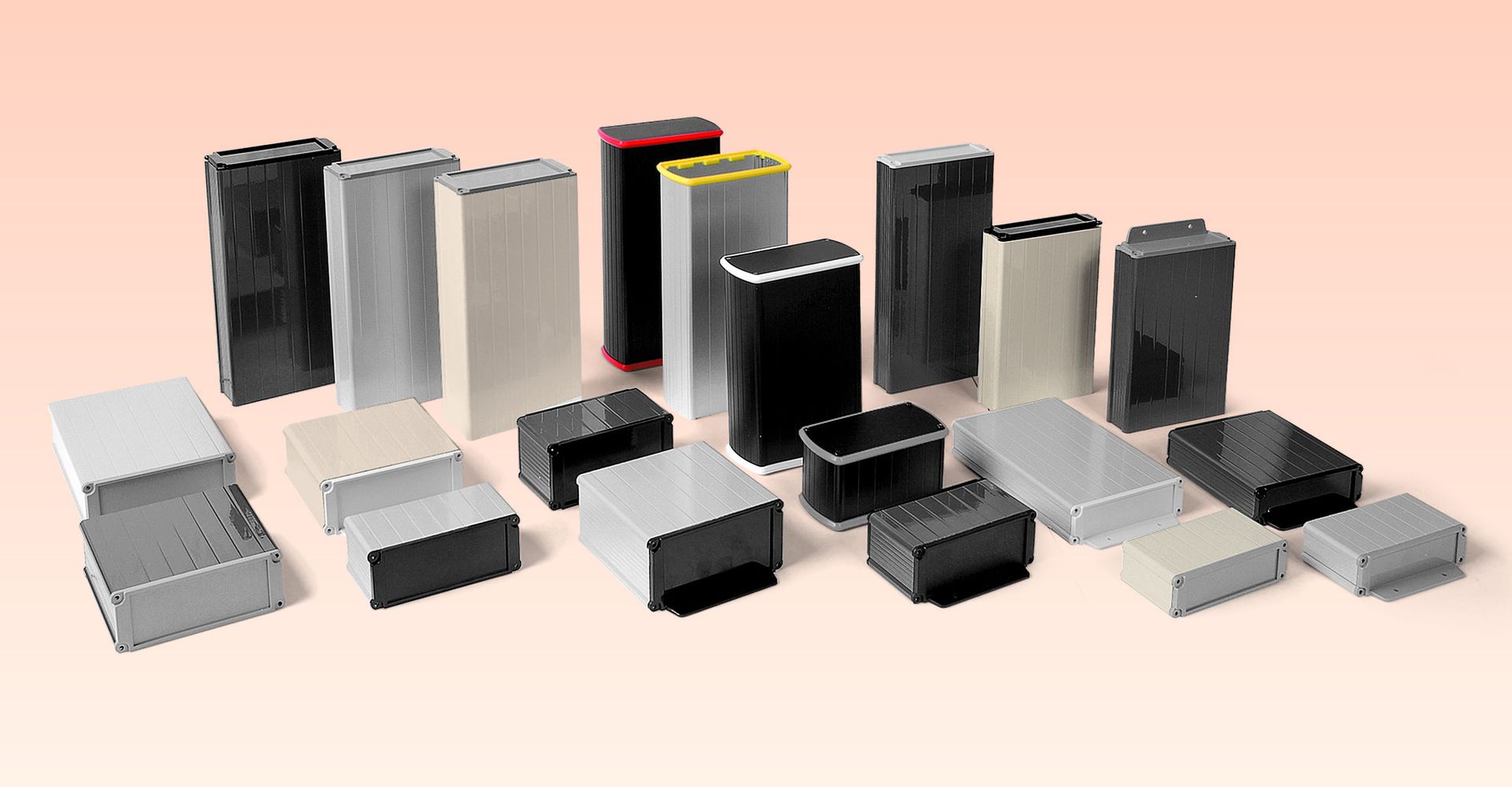Versatile Solutions For Manufacturing Applications
Aluminum profiles are a popular choice for the manufacturing of electronic enclosures due to their excellent strength, lightweight nature, and thermal conductivity. This material is known for its versatility and ability to provide robust protection for electronic components. In this technical document, we will explore the key characteristics of aluminum profiles, their benefits, and how they can enhance your enclosure purchases.
What are Aluminum Profiles?
Aluminum profiles are extruded sections made from aluminum alloy. These profiles can be designed in various shapes and sizes to meet specific requirements, making them highly customizable. The extrusion process allows for the creation of complex cross-sectional geometries, which can be used to design enclosures that offer both functionality and aesthetic appeal.
Key Characteristics of Aluminum Profiles
- High Strength-to-Weight Ratio: Aluminum profiles are strong yet lightweight. This property ensures that enclosures made from aluminum are durable without being overly heavy, which is crucial for both ease of installation and transportation.
- Thermal Conductivity: Aluminum has excellent thermal conductivity, making it an ideal material for enclosures that need to dissipate heat. This property helps in maintaining the optimal operating temperature of electronic components.
- Corrosion Resistance: Aluminum naturally forms a protective oxide layer that resists corrosion. This makes aluminum enclosures suitable for use in various environments, including those with high humidity or exposure to chemicals.
- Mechanical Strength: The high mechanical strength of aluminum ensures that enclosures maintain their shape and integrity under stress. This is important for protecting sensitive electronic components from physical damage.
- Ease of Fabrication and Machining: Aluminum is easy to cut, shape, and join, allowing for intricate designs and custom enclosures. The material can be anodized or powder-coated to enhance its appearance and provide additional protection.
- Aesthetic Appeal: Aluminum profiles can be finished in a variety of ways, including anodizing, painting, and powder coating. These finishes not only protect the material but also enhance its visual appeal, making aluminum enclosures suitable for both functional and decorative applications.

Benefits of Aluminum Profiles for Enclosures
- Enhanced Protection: The high strength and rigidity of aluminum profiles provide excellent protection for electronic components. Enclosures made from aluminum can effectively shield sensitive electronics from physical damage, ensuring their longevity and reliability.
- Thermal Management: The excellent thermal conductivity of aluminum helps in efficient heat dissipation, preventing overheating of electronic components. This is particularly important for high-power applications and densely packed enclosures.
- Durability and Longevity: Aluminum enclosures are highly durable and resistant to environmental factors such as corrosion, UV radiation, and extreme temperatures. This durability reduces the need for frequent replacements, saving time and costs in the long run.
- Customization: The ease of fabrication with aluminum profiles allows for the creation of custom enclosures that meet specific requirements. Whether you need a particular size, shape, or finish, aluminum can be tailored to match your specifications.
- Aesthetic Flexibility: Aluminum profiles can be finished in various ways to enhance their appearance. This versatility enables the creation of enclosures that are not only functional but also visually appealing, contributing to a professional and polished look for your products.
How Aluminum Profiles Enhance Enclosure Purchases
When selecting enclosures for electronic components, it is essential to consider the material's properties and how they align with your requirements. Aluminum profiles stand out as an excellent choice for several reasons:
- Reliability: The robust nature of aluminum ensures that your enclosures will provide consistent and reliable protection for your electronics, reducing the risk of damage and failure.
- Long-Term Performance: Aluminum enclosures are built to last, offering long-term performance even in demanding environments. This longevity translates to better value for your investment.
- Design Flexibility: The ability to create custom designs with aluminum profiles means you can have enclosures that perfectly fit your components, optimizing space and functionality.
- Reduced Maintenance: The durability and corrosion resistance of aluminum reduce the need for frequent maintenance and replacements, lowering overall costs and downtime.
- Professional Appearance: The various finishing options for aluminum profiles allow you to present your products in an attractive and professional manner, enhancing your brand image and appeal to customers.
Conclusion
In conclusion, aluminum profiles are a great material for electronic enclosures, offering a combination of strength, thermal conductivity, and versatility. By choosing aluminum profiles for your enclosure needs, you can ensure enhanced protection for your components, long-term reliability, and cost-effective solutions. Whether you need custom designs or standard enclosures, aluminum profiles provide the performance and aesthetic options to meet your requirements. Make the smart choice with Altinkaya aluminum profiles and experience the benefits they bring to your enclosure purchases.
















